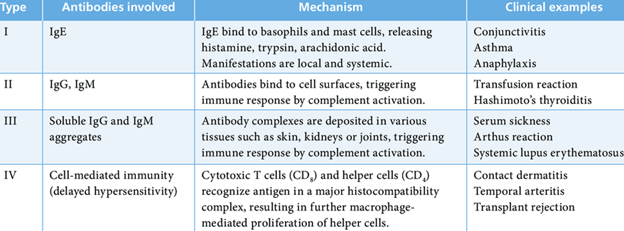While instructing a patient about antibiotic therapy, the nurse explains to the patient that bacterial resistance to antibiotics can occur when:
Antibiotics are prescribed according to culture and sensitivity reports.
Patients stop taking an antibiotic after they feel better.
Antibiotics are taken with ascorbic acid (vitamin C).
Antibiotics are taken with water or juice.
The Correct Answer is B
A. Antibiotics are prescribed according to culture and sensitivity reports:
When antibiotics are prescribed based on specific tests like cultures and sensitivity reports, it ensures that the right antibiotic is chosen for the specific bacteria causing the infection. This practice helps in targeting the infection more effectively, reducing the risk of antibiotic resistance.
B. Patients stop taking an antibiotic after they feel better:
This scenario is problematic. When patients start feeling better, they might assume the infection is completely gone and stop taking antibiotics before the prescribed course is finished. This premature discontinuation can leave some bacteria alive, which may develop resistance to the antibiotic used. This practice is a significant contributor to antibiotic resistance.
C. Antibiotics are taken with ascorbic acid (vitamin C):
Ascorbic acid (vitamin C) doesn't have a significant impact on antibiotic resistance. It is not a factor contributing to antibiotic resistance.
D. Antibiotics are taken with water or juice:
Whether antibiotics are taken with water or juice doesn’t directly influence antibiotic resistance. Proper hydration is essential to support the body's overall health, but it doesn't impact the development of antibiotic resistance.
Nursing Test Bank
Naxlex Comprehensive Predictor Exams
Related Questions
Correct Answer is B
Explanation
A. "You have developed urticaria in response to something in your environment."
This statement is incorrect. Urticaria refers to hives, a skin rash usually caused by an allergic reaction, infection, or stress. It's not necessarily indicative of an autoimmune disease.
B. "Your immune system is creating antibodies that are destroying your own cells."
This statement is correct. Autoimmune diseases involve the immune system mistakenly attacking the body's own cells and tissues, leading to various health issues.
C. "Your immune system is not able to create antibodies to help you fight infection."
This statement is incorrect. In autoimmune diseases, the immune system is overactive, producing antibodies that target the body's own cells, not that it can't create antibodies.
D. "You have developed an infection that is destroying your immune cells."
This statement is incorrect. Infections don't typically destroy immune cells; instead, infections often stimulate the immune system to respond and fight against invading pathogens.
Correct Answer is B
Explanation
A. Type IV Hypersensitivity (Delayed Hypersensitivity Reaction): This type of reaction involves a delayed immune response, typically occurring 24 to 72 hours after exposure to an antigen. It's characterized by the activation of T cells and macrophages, leading to inflammation. This type of hypersensitivity is often associated with conditions like contact dermatitis and some autoimmune diseases.
B. Type III Hypersensitivity (Antibody-Mediated Reaction): Type III hypersensitivity reactions occur when immune complexes, which are composed of antigens and antibodies, deposit in various tissues. This leads to inflammation and tissue damage. Systemic lupus erythematosus (SLE) is an example of a disease associated with Type III hypersensitivity.
C. Type II Hypersensitivity: This type of reaction involves antibodies (IgG or IgM) targeting antigens on the surface of cells. This can lead to cell destruction through various mechanisms, such as complement activation or antibody-dependent cell-mediated cytotoxicity (ADCC). Examples include hemolytic transfusion reactions and autoimmune hemolytic anemia.
D. Type I Hypersensitivity (Immediate Hypersensitivity Reaction): Type I hypersensitivity is characterized by an immediate immune response, typically occurring within minutes of exposure to an allergen. It involves the release of histamines and other mediators from mast cells and basophils, leading to symptoms like hives, respiratory distress, and anaphylaxis. Allergies, like hay fever and food allergies, are examples of Type I hypersensitivity reactions.

Whether you are a student looking to ace your exams or a practicing nurse seeking to enhance your expertise , our nursing education contents will empower you with the confidence and competence to make a difference in the lives of patients and become a respected leader in the healthcare field.
Visit Naxlex, invest in your future and unlock endless possibilities with our unparalleled nursing education contents today
Report Wrong Answer on the Current Question
Do you disagree with the answer? If yes, what is your expected answer? Explain.
Kindly be descriptive with the issue you are facing.
